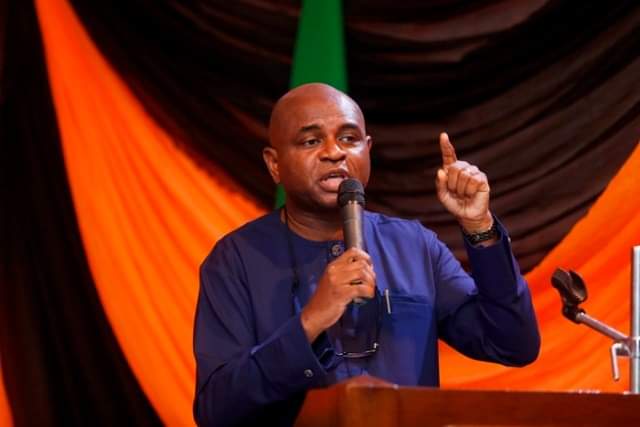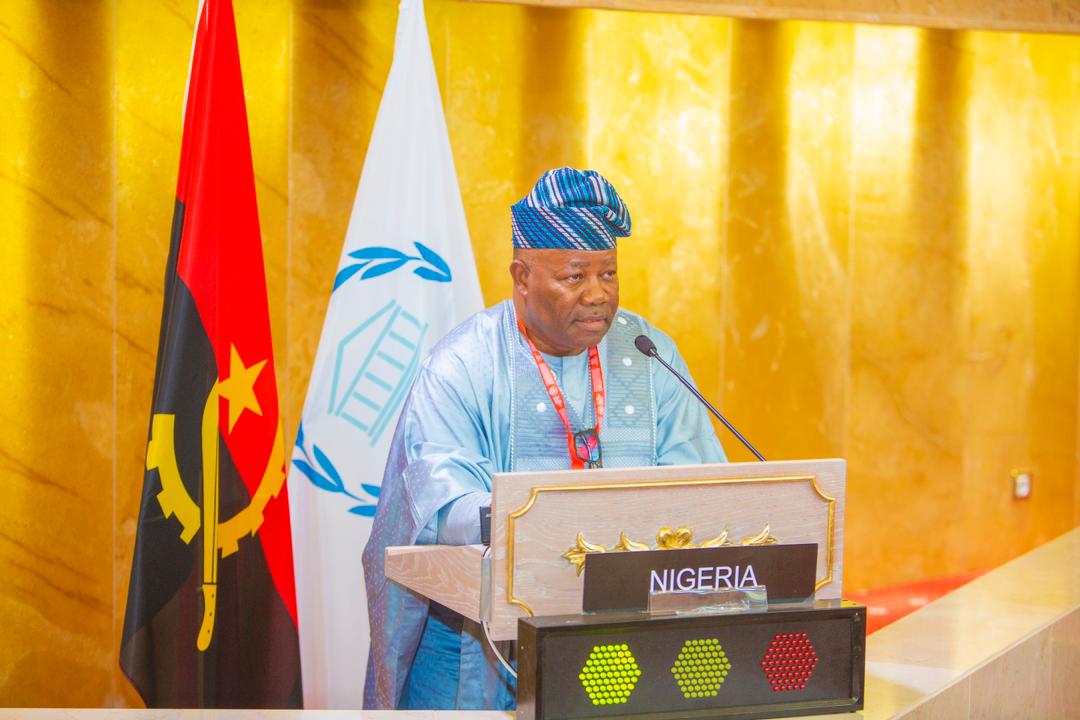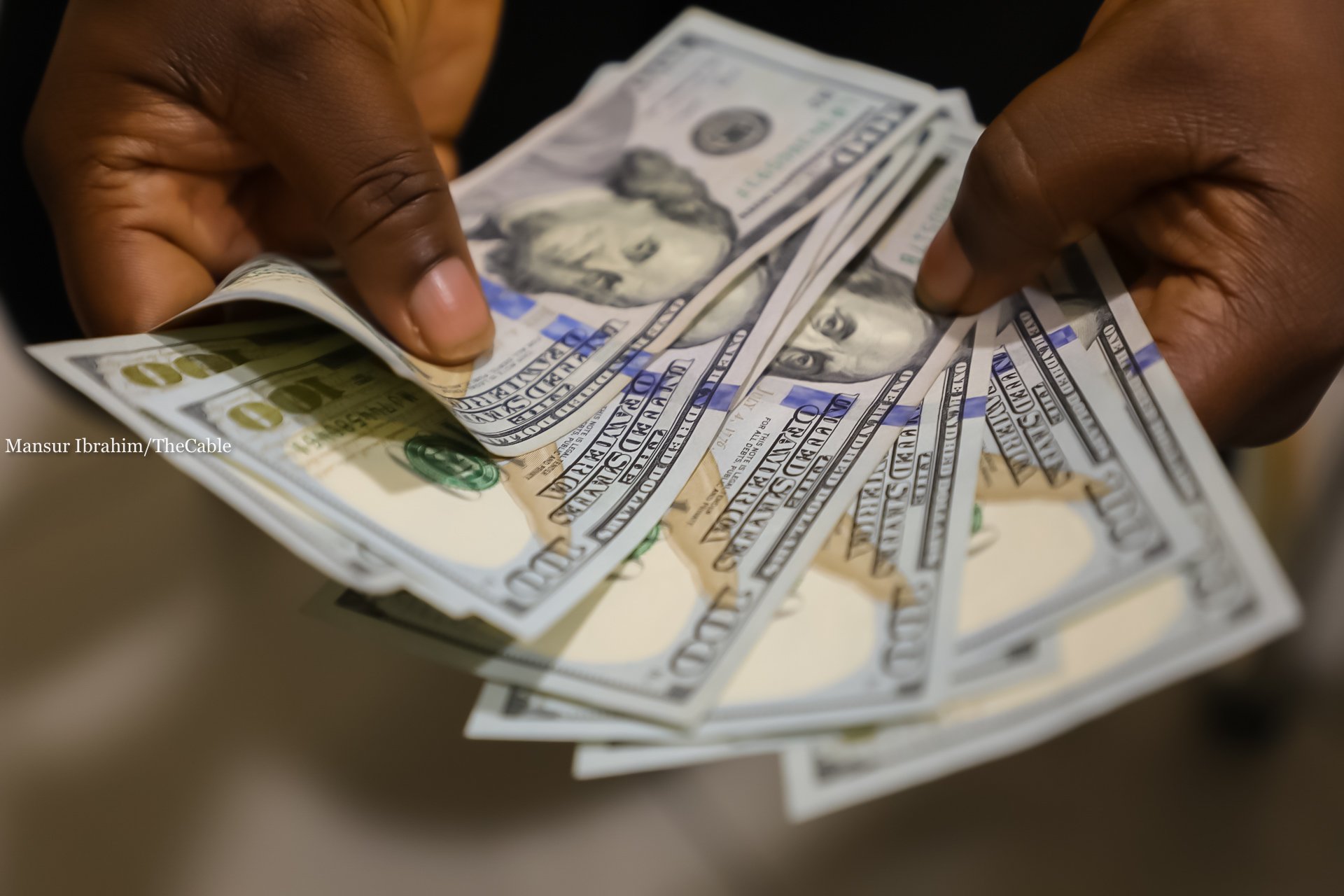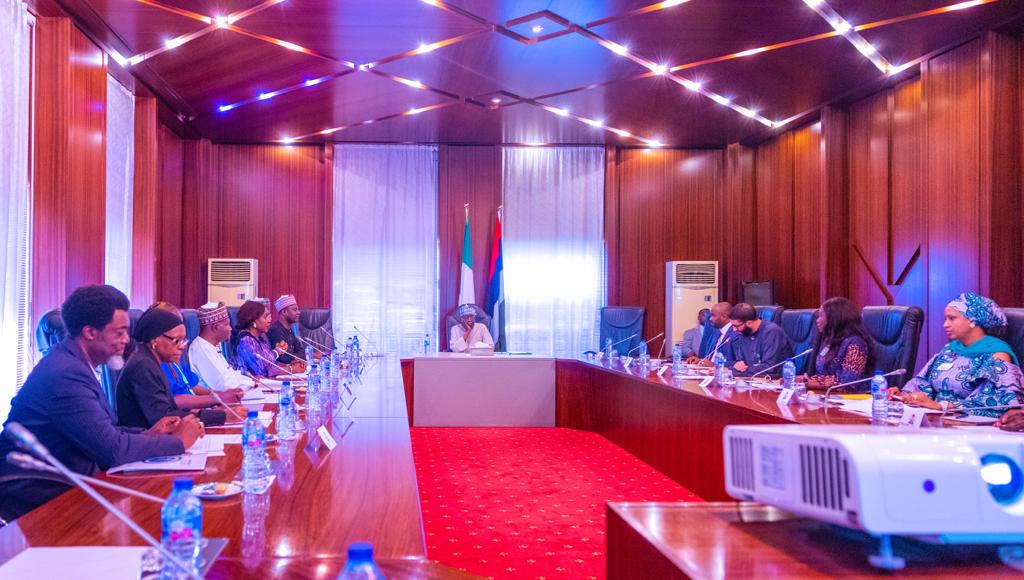Kingsley Moghalu, a former deputy governor of the Central Bank of Nigeria (CBN), says the naira’s value can be restored only through Nigeria’s transition into an economy driven by exports.
Moghalu spoke on Tuesday during the Nigeria Economic Summit Group conference held in Abuja.
Nigeria’s foreign exchange (FX) market, since the incumbent government assumed power, has seen unprecedented levels of volatility, leading to a gap in exchange rates of more than N200 between the official and parallel trading windows.
The situation of the naira was worsened after the federal government unified all trading platforms into the official FX window, effectively allowing buyers and sellers to determine FX rates.
Advertisement
On Monday, the local currency continued its depreciation streak at the parallel section of the FX market, closing at N1,225 per dollar.
Proffering solutions to strengthening the local currency, Moghalu said the country’s transition to an export-driven economy is necessary for the naira’s recovery.
The economist said there is a need to emphasise the importance of adopting a long-term approach to resolving the issue.
Advertisement
“The way to fix the naira that has problems is a combination of things. Some of them are short-term, but let me start with the long-term because we’ve been trying to fix the problem of the naira for a long, long time. It’s just been getting worse,” he said.
“The only way you can fix the naira is that the Nigerian economy needs to become a productive export-driven economy.”
Moghalu, however, said the nation has not devised a robust plan to strengthen the currency.
“I can’t say this enough and I’m not the only one who’s saying it. But up till today, we have not seen a comprehensive plan with targets to achieve this,” he said.
Advertisement
“And even when plans are made, they are not always as informed as they should be.”
Moghalu said it is important for the federal government to clear FX backlogs as a major problem affecting the naira is confidence.
He also said Nigeria needs to raise interest rates to increase its foreign portfolio investments (FPI) so as to boost liquidity in the FX market.
“Recent events have convinced me that we have to,” he said.
Advertisement
“One of the reasons is that the only way you can encourage immediate inflows that will stabilise the naira is not even so much foreign investment, it’s foreign portfolio investment, which is investments in the open market operations, treasury bills, [and] the stock exchange.
“For them [investors] to do that, they need to see that the gap between the monetary policy rate… which today is at about 19 percent (18.75) and the inflation rate which is almost at 27 percent, must be closed.
Advertisement
“That gap must be narrowed, otherwise, investors feel it’s not a very sound investment to make in terms of the yield”
Meanwhile, Wale Edun, minister of finance and coordinating minister of the economy, had said Nigeria is expecting $10 billion in foreign currency inflows in the next few weeks to ease liquidity in the FX market.
Advertisement
Add a comment






